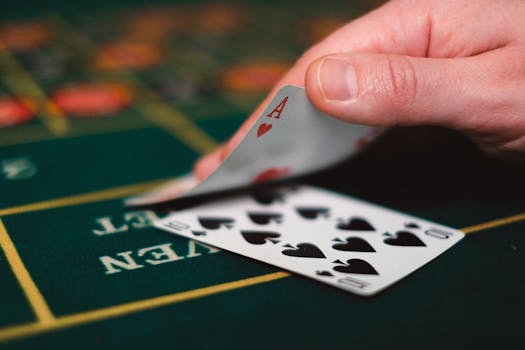The Psychology of Chasing Casino Jackpots
The thrill of hitting a casino jackpot is an unparalleled experience, drawing countless individuals to the flashing lights and sounds of casinos worldwide. But what drives this relentless pursuit of casino jackpots? This article delves into the psychological mechanisms behind the allure of casino gambling and explores various approaches to understanding and managing the urge to chase potentially life-changing wins.
Understanding the Psychological Triggers
Casino jackpots stimulate the brain's reward system, releasing a chemical cocktail of dopamine and adrenaline. This euphoric response can lead to what psychologists call 'positive reinforcement', where the behavior of gambling is encouraged to recur due to the pleasurable feelings associated with these chemical releases. The intermittent and unpredictable nature of winning acts like a variable ratio reinforcement schedule, which is known to create a high and steady rate of response, making gambling behaviors extremely resistant to extinction.
Moreover, the concept of the 'near-miss' plays a significant role. According to research, near-misses (where outcomes are close to a jackpot win but not actual wins) may be as stimulating as wins, encouraging continued play and pursuit of the elusive jackpot (Source: Journal of Gambling Studies).
Cognitive Distortions in Gambling
Many gamblers suffer from cognitive distortions that propel them towards continuous play. These include the 'gambler’s fallacy', the belief that one is due for a win after a string of losses, and 'illusion of control', where players believe they can influence the outcome of a purely chance-based game. Acknowledging these distorted thoughts is crucial in dealing with compulsive gambling behaviors.
Approaches to Managing Jackpot Chasing
- Setting Limits:
- Understanding the Odds:
- Seeking Professional Help:
One practical approach to managing the pursuit of jackpots is setting strict limits on time and money spent gambling. This can help maintain gambling as a form of entertainment rather than a problematic behavior. Many casinos and online gambling platforms offer tools to set these limits proactively.
Educating oneself about the actual odds of winning big can also temper expectations and reduce the risk of gambling harm. For instance, the odds of winning a major multi-million-dollar jackpot can be as low as one in several million.
For those who find it difficult to control their gambling habits, seeking help from professionals like psychologists or specialized gambling counselors can be beneficial. Therapies like Cognitive Behavioral Therapy (CBT) have been shown to help gamblers overcome irrational beliefs and replace them with healthier, more rational ones.
Advantages and Disadvantages of Each Approach
Setting Limits: Advantages: Empowers gamblers to maintain control over their gambling habits; reduces the risk of developing gambling problems. Disadvantages: Relies on self-discipline; may not be effective for those already experiencing significant gambling issues.
Understanding the Odds: Advantages: Demystifies gambling outcomes; promotes a more rational approach to gambling. Disadvantages: Might not be sufficient to change deeply ingrained gambling behaviors on its own.
Seeking Professional Help: Advantages: Provides tailored support and strategies for managing gambling behaviors; addresses underlying psychological issues. Disadvantages: May be stigmatized; requires time and commitment.
Practical Example
Consider the story of John, a regular casino-goer. John enjoyed slot machines, particularly those offering large jackpots. Initially, he gambled within his means, but over time, the excitement of nearly hitting the jackpot several times led to increased spending and frequent visits. Recognizing this, John decided to set strict limits on his gambling expenses and sessions. Additionally, he educated himself about the actual probabilities of winning big and eventually sought guidance from a gambling counselor. These steps helped him enjoy gambling as a leisure activity without the stress of chasing losses.
Conclusion
The psychology of chasing casino jackpots is rooted in complex psychological phenomena that manipulate our reward systems. While the thrill of potentially winning big can be exhilarating, it is crucial to approach gambling with awareness and caution. Setting limits, understanding the odds, and seeking professional help when needed are effective strategies for managing gambling behaviors. Remember, gambling should be a source of entertainment, not stress. If you find yourself struggling with gambling, consider reaching out for professional help to guide you towards healthier gambling practices.
For those interested in further information or needing assistance, visiting websites such as the National Council on Problem Gambling can be a valuable resource.

.png)





